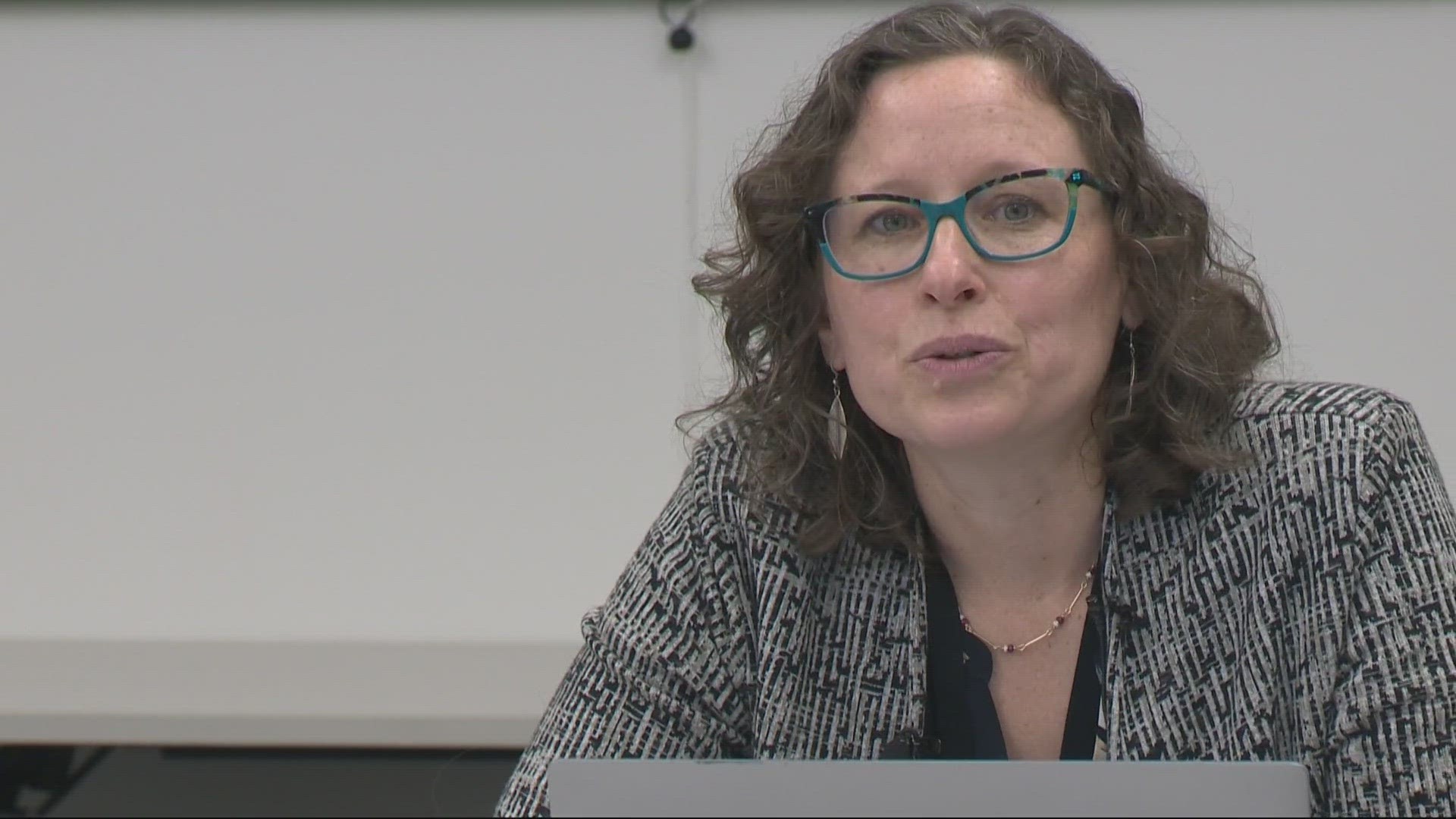PORTLAND, Ore. — The city of Portland has added a new staff member to aid in their response to homelessness. Brandy Westerman is the director of emergency humanitarian operations. It’s a new position that works closely with the mayor to manage two city shelter programs: the Safe Rest Villages and the Temporary Alternative Shelter Sites, which recently moved under one umbrella.
“I found myself a year or so ago realizing that the humanitarian crisis that we’re experiencing right here in the city wasn’t getting better — in fact we’re seeing it get worse, with people dying on our streets every day,” Westerman said in opening remarks to a limited group of reporters Wednesday. “That was compelling to me to take the learning and experiences that I’ve had working internationally to try and apply some of those here at home.”
“Behavioral health is a critical piece in this, and we need to continue to invest when we are stepping up our efforts as a city, as a county, as a state as a country in providing the right level of behavioral health support,” she said.
In the past eight months, more than 150 people transitioned from city shelters into housing. Westerman admits it’s a small success amid a larger problem.
“Shelter is not the answer to homelessness. We believe that transitional shelters are an important part of how we address the situation that we have right now,” she said.
KGW reporter Blair Best asked Westerman how the city plans to reach people on the streets who refuse the offer of shelter.
“So, I hear some of these stories as well, and at the same time the shelters are operating at capacity — there’s a high demand for sheltering services. I would love to be in that position of having the luxury of only those individuals who are resistant to services, but the truth is there are a lot of people seeking those services right now and we don’t have enough beds to serve them,” she said.
Westerman added to that response in a statement later on Wednesday:
"We have to meet people where they are. And work together with our partners in the county, state and nonprofit sector to pool resources across the system. It’s extremely important that we look for who doesn’t have voice, who’s been left out of systems and conversations, and provide that space.
"When people experiencing homelessness are service-resistant, it’s often due to trauma from previous shelter experiences, a distrust of service providers or a misunderstanding about how low-barrier shelter options (operate), which allow folks to bring their partners and pets, for example. Our outreach teams continue to engage with folks who initially decline shelter, to first understand why and then work to identify their existing barriers, answer their questions, and offer information about the existing shelters and services."
In January, the city announced that it was "merging" Save Rest Villages and the TASS camps into a single entity called City of Portland Shelter Services, which Westerman will be heading, though they'll remain distinct in how they're operated. A city spokesperson told KGW that her annual salary will be $185,016.
Last month, the county also added a similar position called the director of the homelessness response system, which was filled with County Chair Jessica Vega Pederson's former Chief of Staff Chris Fick. His position is not directly a part of the Joint Office of Homeless Services, which has its own director.

